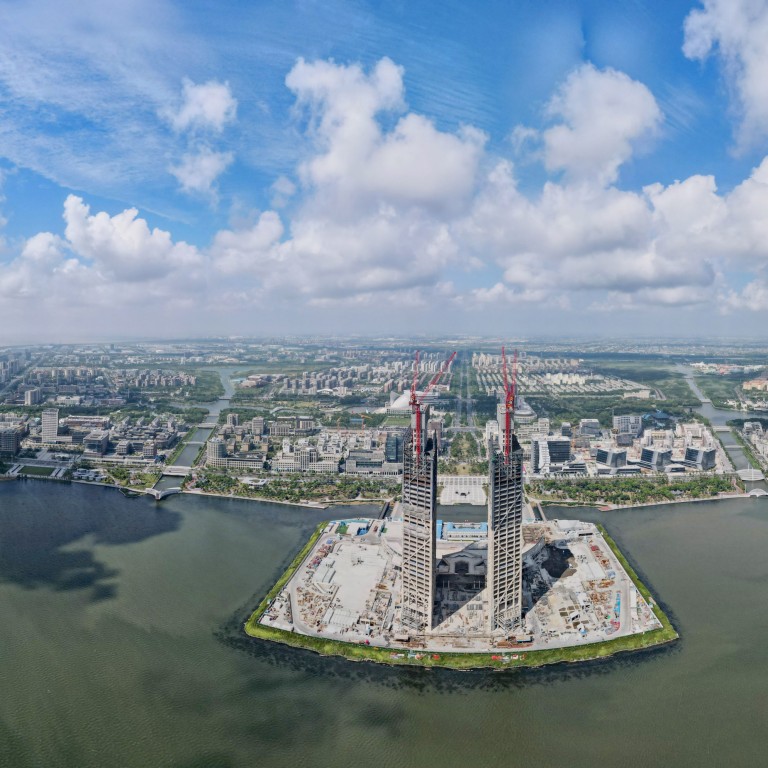
Shanghai opens data economy industrial park in pilot free-trade zone Lingang amid China’s AI push
- The International Data Economy Industrial Park aims to draw more than 100 leading data firms with a combined output of over 100 billion yuan by 2025
- The park will serve as a stress test for China’s goal to join international trade pacts, including the CPTPP
Shanghai has opened an expansive industrial park focusing on the data industry, as the city pushes forward its ambitious three-year digital economy blueprint as part of China’s efforts to boost digital trade.
The International Data Economy Industrial Park, located in the pilot free-trade zone of Lingang, is tasked with “implementing safe and orderly cross-border flows of international online data”, according to a policy document unveiled by Lingang officials at the International Data Economy Industry Cooperation Conference on Friday.
Under the plan, the park aims to build itself into an international industry cluster with more than 100 leading data companies and a combined output of over 100 billion yuan (US$13.6 billion) by 2025.
The trade bloc currently includes Australia, Brunei, Canada, Chile, Japan, Malaysia, Mexico, New Zealand, Peru, Singapore and Vietnam.

On Friday, the park welcomed its first batch of 25 companies involved in data-related businesses.
The plan reflects broader efforts by Shanghai to turn its digital economy into a new growth engine, as laid out in the local government’s 2023-2025 digital economy master plan unveiled in August.
Under the three-year plan, the existing Shanghai Data Exchange, which started trading various data products in November 2021, will be transformed into a larger “national-level data exchange” capable of covering transactions across the country by 2025, when some 5,000 data products are expected to be listed on the bourse.
“In the era of digital economy, data has become a key factor of production, and data trade is an important part of digital trade and an area with great development potential,” Zhang Guosheng, deputy director of the Ministry of Commerce’s Department of Trade in Services and Commercial Services, said in a speech at the conference on Friday.
The country is also trying to apply commercial rules to create a market for data, which is regarded by Beijing as a new production factor, in the same category as land, capital, human labour and technology.
The area is also focusing on the expansion of computing capacity, which is often considered as one of three key factors for AI development, along with data and algorithms.
A 10 billion yuan “multi-computing power supply system” will be set up in the area by 2025, a Lingang official said in June. China Telecom, one of the country’s big three telecommunications providers, unveiled a plan in that same month to build a large computing centre in Lingang to support the city’s AI industry.

